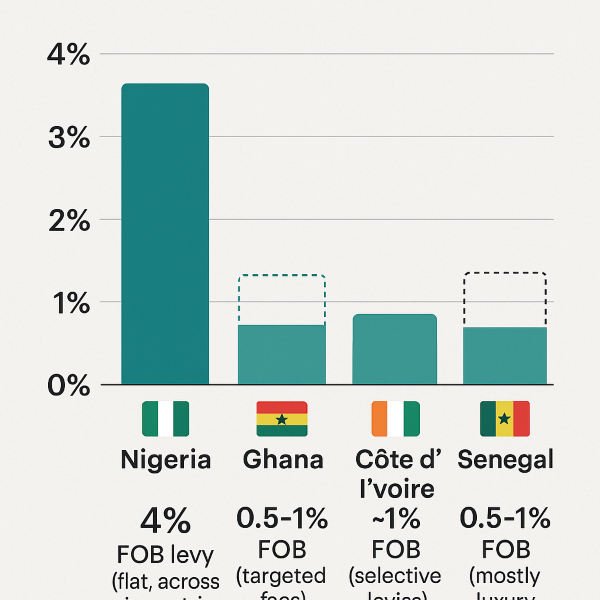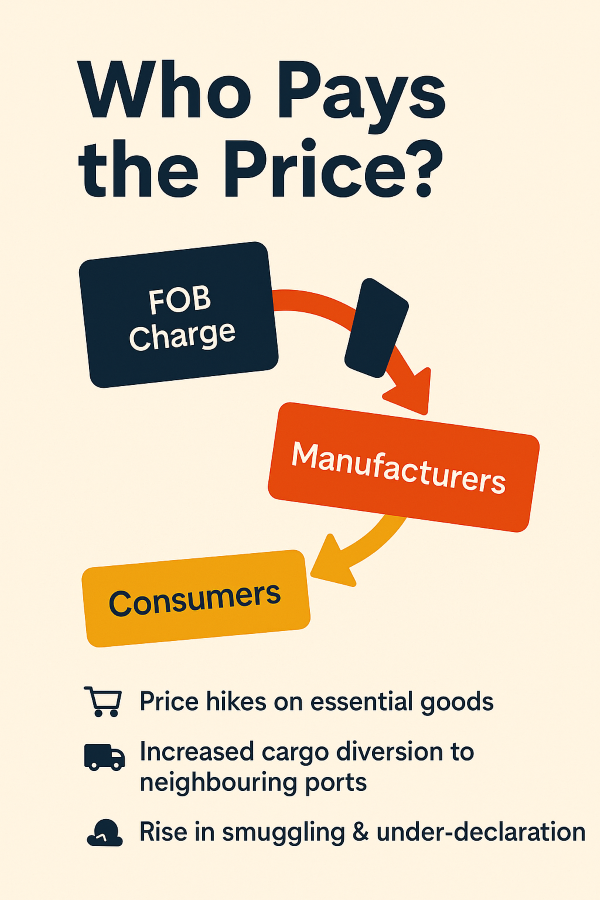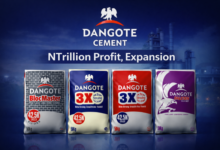Manufacturers Oppose 4% FOB Charge, Warn of Higher Costs and Cargo Diversion

Nigeria’s fragile manufacturing sector has raised a red flag over the reintroduction of the 4% Free on Board (FOB) charge by the Nigeria Customs Service (NCS), which took effect on August 4.
The Manufacturers Association of Nigeria (MAN), through its Director-General, Segun Ajayi-Kadir, described the policy as a contradiction of government’s earlier suspension order and a move that will worsen the already high cost of doing business in Africa’s largest economy.
Why Manufacturers Are Pushing Back
The FOB levy, which Customs insists would streamline multiple charges and reduce cargo clearance costs, is viewed by industry players as a stealth tax on local production.
According to MAN’s rapid technical assessment:
- The 4% levy per consignment is far costlier than the combined effect of the previous 7% surcharge and 1% Comprehensive Import Supervision Scheme (CISS) levy.
- It disproportionately affects manufacturers who import raw materials, machinery, and spare parts that are unavailable locally.
- By contrast, countries like Ghana, Côte d’Ivoire, and Senegal peg inspection fees within 0.5–1% FOB, reserving higher levies only for luxury or non-essential imports.
“The unilateral imposition of a uniform 4% FOB levy would raise costs, encourage informal cross-border sourcing, lead to cargo diversion, and promote under-declaration,” Ajayi-Kadir warned.

Industrial and Economic Implications
The timing of the reintroduced levy could not be worse for Nigerian manufacturers already battling:
- Inflationary pressures (headline inflation above 30%).
- Weak naira and forex scarcity, which amplifies import costs.
- Rising energy tariffs and logistics bottlenecks.
The FOB charge risks translating directly into higher prices for finished goods, hurting not just factories but also 230 million Nigerian consumers already stretched by the cost-of-living crisis.
Additionally, the move could accelerate cargo diversion to neighbouring ports like Cotonou (Benin Republic), worsening Nigeria’s competitiveness in West African trade corridors.
MAN’s Recommendations
To avoid further shocks to the industrial base, MAN is urging the Federal Government and Customs to:
- Suspend the 4% FOB levy immediately.
- Extend consultations with manufacturers and strategic stakeholders until December 31, 2025, aligning implementation with the January 2026 start date of new tax laws.
- Retain the current 1% CISS + 7% cost of collection fee as a temporary balance between revenue needs and industrial survival.
- Conduct a technical impact assessment to determine a fair, business-friendly levy structure.
Ajayi-Kadir stressed that a pragmatic approach is necessary to preserve jobs, protect local industries, and attract investment into a sector that remains the bedrock of economic diversification.
BRANDECONOMY Takeaway
The clash over the 4% FOB charge goes beyond Customs revenue—it is a litmus test of Nigeria’s industrial policy consistency.
For manufacturers, this is not about avoiding levies but about ensuring that charges do not cripple local production, fuel smuggling, and erode competitiveness. For government, it is a choice between short-term revenue gains and long-term industrial growth.
If Nigeria is serious about industrialisation, the path forward is clear: consult, recalibrate, and implement business-friendly reforms that balance revenue with competitiveness.












